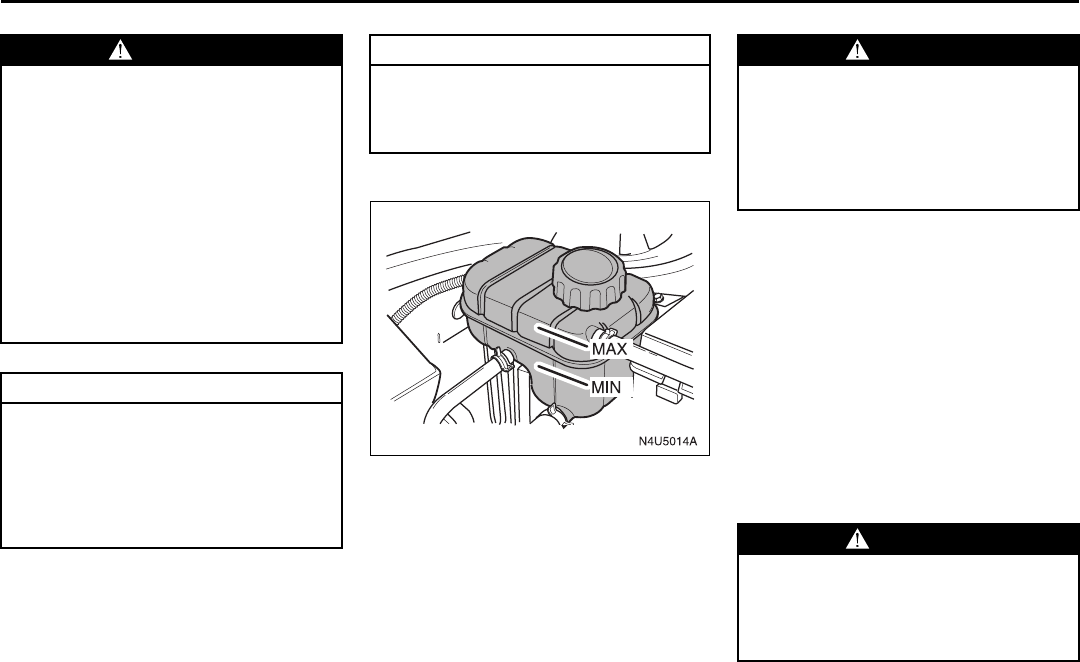
5-13
SERVICE AND APPEARANCE CARE
85Z04-03E
If you have to add coolant more than four
times a year, have your SUZUKI dealer
check your cooling system.
Checking Coolant
The engine coolant surge tank is located
on the driver’s side of the engine compart-
ment. See “Engine Compartment Over-
view” in this section for more information
on location.
The vehicle must be on a level surface.
When your engine is cold, the coolant level
should be between MAX and MIN mark on
the coolant surge tank. The level rises at
engine operation temperature and drops
again when the engine cools down.
Adding Coolant
If the level falls below the MIN mark, add
the proper coolant mixture at the surge
tank, but only when the engine is cool. If
the surge tank is empty, a special fill proce-
dure is necessary. See “Cooling System”
in this section for instructions on “How to
Add Coolant to the Coolant Surge Tank”.
WARNING
Adding only plain water to your cool-
ing system can be dangerous. Plain
water, or some other liquid such as
alcohol, can boil before the proper
coolant mixture will. Your vehicle’s
coolant warning system is set for the
proper coolant mixture. With plain
water or the wrong mixture, your
engine could get too hot but you
wouldn’t get the overheat warning.
Your engine could catch fire and you
or others could be burned. Use a 60/
40 mixture of clean, drinkable water
and the proper coolant.
CAUTION
If you use an improper coolant mix-
ture, your engine could overheat and
be badly damaged. The repair cost
wouldn’t be covered by your war-
ranty. Too much water in the mixture
can freeze and crack the engine, radi-
ator, heater core and other parts.
CAUTION
If you use the proper coolant, you
don’t have to add extra inhibitors or
additives which claim to improve the
system. These can be harmful.
WARNING
Never turn the surge tank pressure
cap – even a little – when the engine
and radiator are hot.
Loosening the surge tank pressure
cap when the engine and radiator are
hot can allow steam and scalding liq-
uids to blow out and burn you badly.
WARNING
Don’t spill coolant on a hot engine.
You can be burned if you spill coolant
on hot engine parts. Coolant con-
tains ethylene glycol, and it will burn
if the engine parts are hot enough.
Checking Things Under the Hood:


















